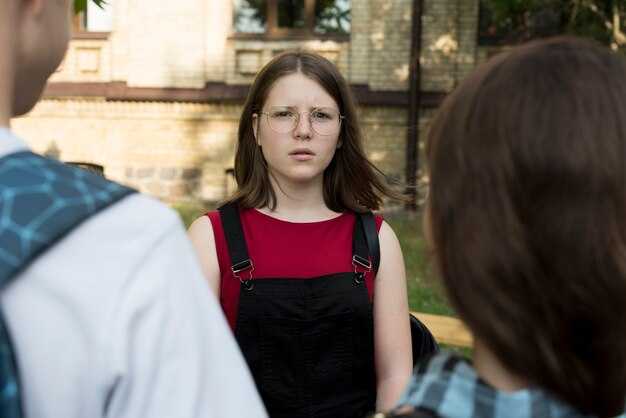Children are remarkably skilled at stitching together a story that allows a parent to be both loving and hurtful at the same time — to punish, to abandon — and we had to make that contradiction fit in our heads. But if that habit persists into adulthood, many people remain trapped in it. You may have become exceptionally adept at living with cognitive dissonance — the psychological distress that arises when what you’re experiencing doesn’t match the narrative you tell yourself. It’s that fuzzy, uncomfortable knowing that someone is treating you terribly and making your life miserable, and yet you keep convincing yourself it’s a healthy relationship. When cognitive dissonance takes hold, clear thinking and sensible self-protection become very difficult. Today’s letter comes from a woman who calls herself Stefania. She writes: Dear Anna — I always wanted children and always wanted a husband, but all my exes dumped and abandoned me. They treated me like worthless trash and took advantage of my kindness. I’m 43 years old. Okay, Stefania — here’s a preliminary read-through: I’ll mentally note a few things to return to. Let’s unpack this. She says she grew up with narcissistic parents; her mother was profoundly narcissistic. Her mother hit her frequently, calling it discipline, and was argumentative and determined to have the last word. As a child, she was constantly shouted at and insulted; she can’t even recall why she was being punished and assumed she was just a normal kid. The physical abuse stopped when she was 16, but then her mother turned to shaming, telling her she wasn’t as good as other teens and making her feel inferior. Criticism followed her through her whole life. When she questioned her mother’s behavior, her mother denied it and insisted she was the best mother in the world — a classic red flag. Her father wasn’t as physically abusive but psychologically mistreated her mother. The pattern of narcissistic bullying didn’t end at home; it extended into friendships and romantic relationships. She became a people-pleaser, constantly striving to be liked, only to be passed over. Others tried to change her, making her feel inadequate; she didn’t even have a best friend growing up. Now she’s in a relationship with a man who is a drug addict and a gambler. His drug of choice is prescription painkillers; he’s been using for over 20 years. They’ve been together two and a half years. She moved in after one year; he never disclosed his addiction. She didn’t recognize the signs because she’d never witnessed substance abuse before; she only realized it after moving in. He can be very sweet and seems to love her; he does things for her and gives her a lot of freedom. But when he’s high he sleeps or spends time at the dealer’s house, leaving her feeling neglected and abandoned. When he’s not using, he becomes agitated, pacing and raging, swearing at and insulting her. He has spit in her face and kicked her; he says he needs drugs “to deal with” her. He constantly lies and deflects responsibility, blaming others for everything. He’s spent money from their savings on drugs. He’s also disrespectful toward other women — staring at them in public, which makes her feel worthless. She told him how hurtful that is and he called her “psycho.” He regularly visits a convenience store where his ex works, allegedly for cigarettes and lottery tickets, but often stays half an hour to chat. She asked him not to go and suggested he use another store; he insists he’s doing nothing wrong and claims he’d be okay if she chatted with an ex because he “trusts” her — his standard is that sex is the only thing that would count as cheating. She tried to explain how disrespectful his behavior feels, but he refuses to see it that way. Why does she stay? Because in many ways he’s one of the best boyfriends she’s had: he would do anything for her, he talks about marrying her, and he wants a future. Most of her past partners wasted her time and didn’t plan a future, didn’t move in or take steps toward marriage. She spent years trying hard to be perfect so they would love her, but they left anyway. Her current boyfriend truly seems to love her and wants a future; he promised to quit drugs and smoking, and she got him to stop going to the casino. Still, she doubts he’ll ever give up drugs or stop being disrespectful toward other women. She recognizes she’s trauma-bonded and codependent and that she’s being emotionally abused, yet she clings to him because she’s 43, feels like she’s not getting younger, and hasn’t had better options. All her exes dumped her like trash. Can you help? — Stefania. What might help here is clear, though it may be hard to hear: Stefania seems deep in cognitive dissonance. Her own words describe someone who is both “so sweet” and capable of kicking, spitting, lying, stealing money, and refusing accountability — and yet she alternates between excusing and praising him. That split is classic cognitive dissonance and it’s agonizing. There’s a lot about addiction that enforces this denial. Programs for families of substance users often describe how relatives minimize or rationalize the addict’s behavior; it’s a kind of denial but with a darker, more persistent quality where your mind flips away from the obvious facts and keeps inventing reasons to stay. Two dynamics often explain why leaving feels impossible. First, the thought of leaving an intimate or bonded relationship can trigger what therapist Pete Walker calls “abandonment mange” — a crushing wave of emotions that feels like social death. The fear of reliving that pain can make staying in a destructive relationship seem less terrifying than leaving it. You sound like you may experience that. Second, there’s something about being with someone secretly high that creates a strange, numbing dynamic: their instability can feel oddly calming, and they often have a limited pool of partners, so they stay with whoever will tolerate them. If you can be persuaded to tolerate their behavior, they’re more likely to remain. That dynamic creates a low-pressure relationship that powerfull y discourages change. But the urgent concern here is physical violence. This isn’t only about emotional harm; he’s kicked and physically assaulted you. Physical abuse is a clear boundary: when someone becomes physically violent, the relationship needs to end. Some people do choose lifelong relationships with partners who use drugs and live on an emotional roller coaster; that is a choice someone can make. But in your case, this relationship is dangerous, destabilizing, and not a healthy foundation for the future you deserve. Another core issue is the childhood wound you described. Growing up with narcissistic parents often produces a fractured or “false” self: people-pleasing, a drive to be perfect, and an internalized sense of not being enough. That pattern makes it hard to show your true self and to set boundaries. It’s understandable that at 43 you want love and possibly children — those are profound desires — but having a child with someone who is abusive and addicted would likely harm both you and any child. If having children is important and feasible for you, consider safer paths to parenthood; at minimum, do not bring a child into this relationship. The healthier next step is to concentrate on your own recovery from the narcissistic wounds and the neglect and criticism you endured. Work toward stronger boundaries, restore a sense of self, and start imagining a life in which you are safe, respected, and loved for who you really are. When trauma keeps you locked in people-pleasing and perfectionism — performing to be loved — it rarely attracts a stable, loving partner. Authentic love grows from the real you, not from a polished performance designed to win approval. Trying to be an idealized version of yourself to make someone stay is a kind of manipulation, not a genuine exchange between mutually loving adults. The people who truly love well want the real, sometimes messy person, not a rehearsed role. So, being yourself — with imperfections, boundaries, and needs — is the path to real connection, even if it means a different timeline for children. Because of the danger and the pattern you’re in, the advice is straightforward: leave this abusive relationship. It’s interfering with your ability to see reality and keep you trapped in denial. Professional therapy can provide vital support — a trained therapist can help you process childhood trauma, dismantle codependent patterns, recognize red flags, and take safe, practical steps out of this situation. One of the hardest things about trauma and abusive relationships is the impulse to try to handle everything alone. That strategy hasn’t worked; healing usually requires a network of people who can reflect reality back to you and help you take steady steps forward. If you want community and structured help, there are groups and programs for people recovering from difficult childhoods and learning to change dysfunctional dating patterns. Courses, daily practice resources, and peer support can be practical complements to therapy. A useful first goal is learning to identify red flags early — so you’re not constantly blindsided by addiction, unavailability, or disrespect. There are lists and free guides available that outline common warning signs to watch for; they can help you spot trouble before you get too involved. The bottom line: prioritize your safety and emotional recovery, get professional and community support, develop boundaries, and do not have children with this man. With steady work and support, it’s possible to move toward relationships where you’re treated with respect and care. There are resources and courses to help people change these patterns and a free PDF that lists red flags to look for; that’s a practical place to start. Take one step at a time and get the help that will keep you safe and help you build a healthier future. [Music]
![Children are remarkably skilled at stitching together a story that allows a parent to be both loving and hurtful at the same time — to punish, to abandon — and we had to make that contradiction fit in our heads. But if that habit persists into adulthood, many people remain trapped in it. You may have become exceptionally adept at living with cognitive dissonance — the psychological distress that arises when what you’re experiencing doesn’t match the narrative you tell yourself. It’s that fuzzy, uncomfortable knowing that someone is treating you terribly and making your life miserable, and yet you keep convincing yourself it’s a healthy relationship. When cognitive dissonance takes hold, clear thinking and sensible self-protection become very difficult. Today’s letter comes from a woman who calls herself Stefania. She writes: Dear Anna — I always wanted children and always wanted a husband, but all my exes dumped and abandoned me. They treated me like worthless trash and took advantage of my kindness. I’m 43 years old. Okay, Stefania — here’s a preliminary read-through: I’ll mentally note a few things to return to. Let’s unpack this. She says she grew up with narcissistic parents; her mother was profoundly narcissistic. Her mother hit her frequently, calling it discipline, and was argumentative and determined to have the last word. As a child, she was constantly shouted at and insulted; she can’t even recall why she was being punished and assumed she was just a normal kid. The physical abuse stopped when she was 16, but then her mother turned to shaming, telling her she wasn’t as good as other teens and making her feel inferior. Criticism followed her through her whole life. When she questioned her mother’s behavior, her mother denied it and insisted she was the best mother in the world — a classic red flag. Her father wasn’t as physically abusive but psychologically mistreated her mother. The pattern of narcissistic bullying didn’t end at home; it extended into friendships and romantic relationships. She became a people-pleaser, constantly striving to be liked, only to be passed over. Others tried to change her, making her feel inadequate; she didn’t even have a best friend growing up. Now she’s in a relationship with a man who is a drug addict and a gambler. His drug of choice is prescription painkillers; he’s been using for over 20 years. They’ve been together two and a half years. She moved in after one year; he never disclosed his addiction. She didn’t recognize the signs because she’d never witnessed substance abuse before; she only realized it after moving in. He can be very sweet and seems to love her; he does things for her and gives her a lot of freedom. But when he’s high he sleeps or spends time at the dealer’s house, leaving her feeling neglected and abandoned. When he’s not using, he becomes agitated, pacing and raging, swearing at and insulting her. He has spit in her face and kicked her; he says he needs drugs “to deal with” her. He constantly lies and deflects responsibility, blaming others for everything. He’s spent money from their savings on drugs. He’s also disrespectful toward other women — staring at them in public, which makes her feel worthless. She told him how hurtful that is and he called her “psycho.” He regularly visits a convenience store where his ex works, allegedly for cigarettes and lottery tickets, but often stays half an hour to chat. She asked him not to go and suggested he use another store; he insists he’s doing nothing wrong and claims he’d be okay if she chatted with an ex because he “trusts” her — his standard is that sex is the only thing that would count as cheating. She tried to explain how disrespectful his behavior feels, but he refuses to see it that way. Why does she stay? Because in many ways he’s one of the best boyfriends she’s had: he would do anything for her, he talks about marrying her, and he wants a future. Most of her past partners wasted her time and didn’t plan a future, didn’t move in or take steps toward marriage. She spent years trying hard to be perfect so they would love her, but they left anyway. Her current boyfriend truly seems to love her and wants a future; he promised to quit drugs and smoking, and she got him to stop going to the casino. Still, she doubts he’ll ever give up drugs or stop being disrespectful toward other women. She recognizes she’s trauma-bonded and codependent and that she’s being emotionally abused, yet she clings to him because she’s 43, feels like she’s not getting younger, and hasn’t had better options. All her exes dumped her like trash. Can you help? — Stefania. What might help here is clear, though it may be hard to hear: Stefania seems deep in cognitive dissonance. Her own words describe someone who is both “so sweet” and capable of kicking, spitting, lying, stealing money, and refusing accountability — and yet she alternates between excusing and praising him. That split is classic cognitive dissonance and it’s agonizing. There’s a lot about addiction that enforces this denial. Programs for families of substance users often describe how relatives minimize or rationalize the addict’s behavior; it’s a kind of denial but with a darker, more persistent quality where your mind flips away from the obvious facts and keeps inventing reasons to stay. Two dynamics often explain why leaving feels impossible. First, the thought of leaving an intimate or bonded relationship can trigger what therapist Pete Walker calls “abandonment mange” — a crushing wave of emotions that feels like social death. The fear of reliving that pain can make staying in a destructive relationship seem less terrifying than leaving it. You sound like you may experience that. Second, there’s something about being with someone secretly high that creates a strange, numbing dynamic: their instability can feel oddly calming, and they often have a limited pool of partners, so they stay with whoever will tolerate them. If you can be persuaded to tolerate their behavior, they’re more likely to remain. That dynamic creates a low-pressure relationship that powerfull y discourages change. But the urgent concern here is physical violence. This isn’t only about emotional harm; he’s kicked and physically assaulted you. Physical abuse is a clear boundary: when someone becomes physically violent, the relationship needs to end. Some people do choose lifelong relationships with partners who use drugs and live on an emotional roller coaster; that is a choice someone can make. But in your case, this relationship is dangerous, destabilizing, and not a healthy foundation for the future you deserve. Another core issue is the childhood wound you described. Growing up with narcissistic parents often produces a fractured or “false” self: people-pleasing, a drive to be perfect, and an internalized sense of not being enough. That pattern makes it hard to show your true self and to set boundaries. It’s understandable that at 43 you want love and possibly children — those are profound desires — but having a child with someone who is abusive and addicted would likely harm both you and any child. If having children is important and feasible for you, consider safer paths to parenthood; at minimum, do not bring a child into this relationship. The healthier next step is to concentrate on your own recovery from the narcissistic wounds and the neglect and criticism you endured. Work toward stronger boundaries, restore a sense of self, and start imagining a life in which you are safe, respected, and loved for who you really are. When trauma keeps you locked in people-pleasing and perfectionism — performing to be loved — it rarely attracts a stable, loving partner. Authentic love grows from the real you, not from a polished performance designed to win approval. Trying to be an idealized version of yourself to make someone stay is a kind of manipulation, not a genuine exchange between mutually loving adults. The people who truly love well want the real, sometimes messy person, not a rehearsed role. So, being yourself — with imperfections, boundaries, and needs — is the path to real connection, even if it means a different timeline for children. Because of the danger and the pattern you’re in, the advice is straightforward: leave this abusive relationship. It’s interfering with your ability to see reality and keep you trapped in denial. Professional therapy can provide vital support — a trained therapist can help you process childhood trauma, dismantle codependent patterns, recognize red flags, and take safe, practical steps out of this situation. One of the hardest things about trauma and abusive relationships is the impulse to try to handle everything alone. That strategy hasn’t worked; healing usually requires a network of people who can reflect reality back to you and help you take steady steps forward. If you want community and structured help, there are groups and programs for people recovering from difficult childhoods and learning to change dysfunctional dating patterns. Courses, daily practice resources, and peer support can be practical complements to therapy. A useful first goal is learning to identify red flags early — so you’re not constantly blindsided by addiction, unavailability, or disrespect. There are lists and free guides available that outline common warning signs to watch for; they can help you spot trouble before you get too involved. The bottom line: prioritize your safety and emotional recovery, get professional and community support, develop boundaries, and do not have children with this man. With steady work and support, it’s possible to move toward relationships where you’re treated with respect and care. There are resources and courses to help people change these patterns and a free PDF that lists red flags to look for; that’s a practical place to start. Take one step at a time and get the help that will keep you safe and help you build a healthier future. [Music]](/wp-content/images/stop-rationalizing-the-way-you-get-mistreated-in-relationships-53iiqqj8.jpg)


 Stop Rationalizing the Way You Get Mistreated in Relationships">
Stop Rationalizing the Way You Get Mistreated in Relationships">

 Why Your Ex Will Never Replace You (And Here’s Proof) | Avoidant attachment style">
Why Your Ex Will Never Replace You (And Here’s Proof) | Avoidant attachment style">
 5 Shocking Reasons You Shut Down Emotionally (That No One Told You)">
5 Shocking Reasons You Shut Down Emotionally (That No One Told You)">
 Validating Pain in the Past">
Validating Pain in the Past">
 When the Avoidant Comes Back: Decoding Their 4 Texts (And How to Respond to Reclaim Your Power)">
When the Avoidant Comes Back: Decoding Their 4 Texts (And How to Respond to Reclaim Your Power)">
 Their Actions Have Consequences.">
Their Actions Have Consequences.">
 O que acontece quando você negligencia um pessoa agradável? || Perseguidor Exausto">
O que acontece quando você negligencia um pessoa agradável? || Perseguidor Exausto">
 Pare o Dano Causado por Estes Pais Agora (Compilação em 4 Vídeos)">
Pare o Dano Causado por Estes Pais Agora (Compilação em 4 Vídeos)">
 Algumas Pessoas Têm ESTA Vantagem Enorme (#4 Na Minha Série "Agindo com Modéstia")">
Algumas Pessoas Têm ESTA Vantagem Enorme (#4 Na Minha Série "Agindo com Modéstia")">
 O casamento pode ser MUITO solitário.">
O casamento pode ser MUITO solitário.">
 O Que um Evitativo REALMENTE Pensa Durante o Contato Zero">
O Que um Evitativo REALMENTE Pensa Durante o Contato Zero">